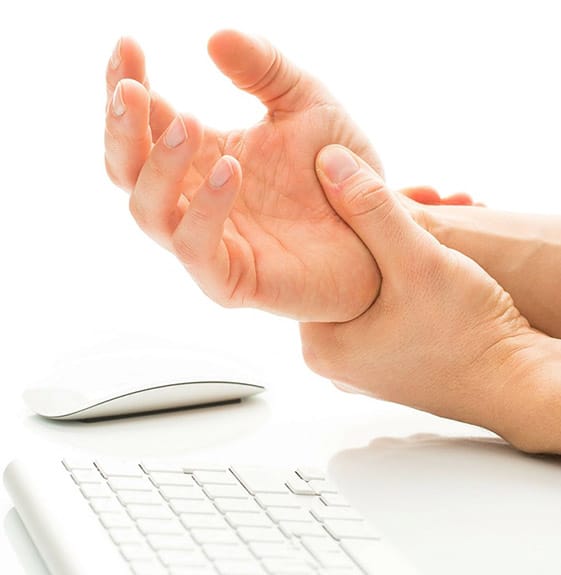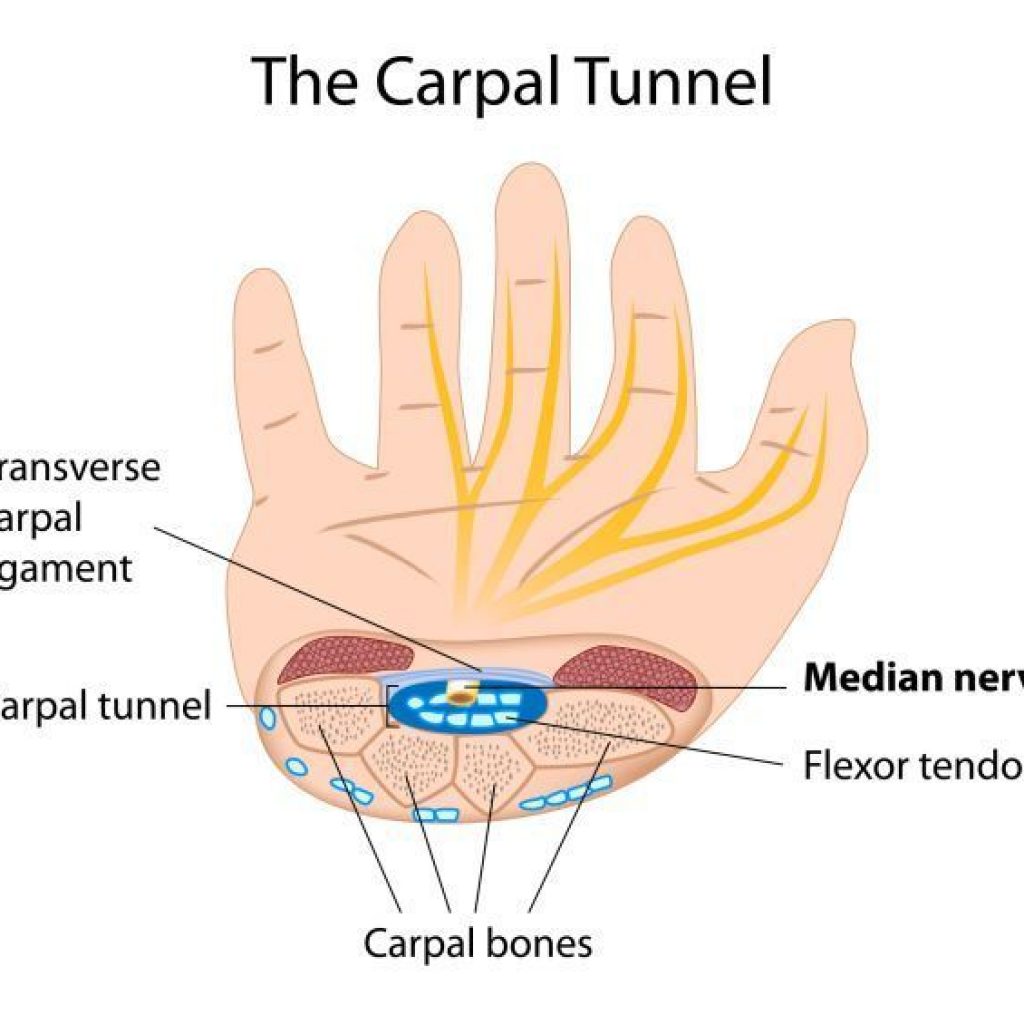Birmingham Health | Uncover a healthy path to chronic joint pain & neuropathic pain.
CHIROPRACTIC CARE FOR CARPAL TUNNEL SYNDROME
Release the Pressure With Chiropractic Care From Birmingham Health

What is carpal tunnel syndrome?
Carpal tunnel syndrome (CTS) describes the symptoms associated with an entrapment of a particular nerve in the wrist, called the median nerve.
Symptoms associated with CTS include:
- numbness, tingling, weakness or pain into the thumb, index, middle and half of the ring finger (median nerve distribution)
- reduction in wrist strength or hand grip strength
- reduction in wrist range of motion
- pain and inflammation surrounding the wrist
Carpal Tunnel Syndrome is most often due to overuse
& responds well to chiropractic care
Our Location
801 Shades Crest Rd Unit B,
Birmingham, AL 35226
Contact Us
Birmingham Health
Phone: 205-385-9999
Email: info@bhamhealth.com

Healing with Chiropractic Care by Birmingham’s Highly Rated Chiropractor, Dr. Alex Casey
Dr. Alex Casey is the local chiropractic and wellness expert for Birmingham, Hoover and the surrounding areas and can advise you on many components of living a wellness lifestyle.
As part of your wellness lifestyle, it is important to be checked regularly by your family chiropractor for the presence of vertebral subluxations.
Dr. Alex Casey with Birmingham Health is an expert in the detection and correction of subluxations, removing nervous system interference and allowing your body to express its full healing potential.
What Exactly Is the Carpal Tunnel?
Your carpal tunnel is formed by 8 small bones in your wrist and a strong, thick ligament called the flexor retinaculum.
These structures form a “tunnel” through which many tendons pass, as well as your median nerve coming down from your arm.
What Causes Carpal Tunnel Syndrome?
Most commonly, repetitive use of the forearms, wrists, and hands will cause irritation of the tendons in the tunnel, causing inflammation to build up, eventually compressing the median nerve and leading to symptoms of carpal tunnel syndrome.
- Since the carpal tunnel is an enclosed structure, the inflammation stays and builds within the tunnel, leading to direct compression of the median nerve.
- Anyone who uses their arms and hands repetitively is at risk: computer workers, musicians, and factory workers are a few examples.
- Falls or fractures to the wrist can also result in the development of CTS.
- Other more rare causes of CTS include arthritis, Paget’s disease and certain medication use.
Carpal Tunnel Syndrome is best managed conservatively at first.
Carpal Tunnel Syndrome Is a Growing Problem Affecting Nearly 5% Of Our Working Population At Any Given Time.
ISSUES THAT MIMIC CARPAL TUNNEL SYNDROME
Since the nerves that pass through your wrist begin in your neck, it’s important to have these areas examined for dysfunction and nerve irritation.
“Double Crush Syndrome” is a term used to describe irritation of the nerves in both the carpal tunnel and higher up along the nerve pathways, resulting in the need for both entrapment sites to be addressed if resolution is to be achieved.
“Thoracic Outlet Syndrome” is a term used to describe various nerve entrapments around the brachial plexus (nerve bundle) in the neck. Since the nerves eventually feed into the wrist and hand, patients may experience symptoms similar to CTS, even though the entrapment is actually happening near the neck.

THE TRADITIONAL MEDICAL APPROACH
- The traditional medical approach for CTS includes splinting the wrist in a neutral position (to avoid excessive stress on the carpal tunnel), as well as drug therapy, steroid injections, and eventually surgical release of the carpal tunnel.
- Complication with surgery are rare, however when they do happen they can result in significant limitations for patients with CTS. Combined with the high costs associated with surgery, it makes sense to exhaust all conservative methods of care before resorting to surgical procedures.
THE CHIROPRACTIC APPROACH FROM BIRMINGHAM HEALTH
- Alex Casey and the Birmingham Health team is ideally trained to examine your entire body, including your wrist, for the source of your CTS symptoms. It is important that all sites be examined for nerve compression if you are to receive relief from care.
- Studies have shown improvements in wrist strength, range of motion and nerve symptoms following chiropractic care.
Correction of misalignments in your spine and extremities, along with mobilization of the carpal bones, nerves and surrounding soft tissue in the arm and wrist have all been shown to improve CTS symptoms in a safe and non-invasive way using chiropractic care. - Follow-up studies also indicate that CTS patients are often able to achieve a significant recovery to within comparative levels of non-CTS patients in most measures of progress.
- Dr. Casey can also educate you on ergonomic strategies for work and home to help minimize the original source of your carpal tunnel syndrome issues.
LEARN MORE
If you have question or want to learn more about Birmingham Health, contact our friendly office today!
